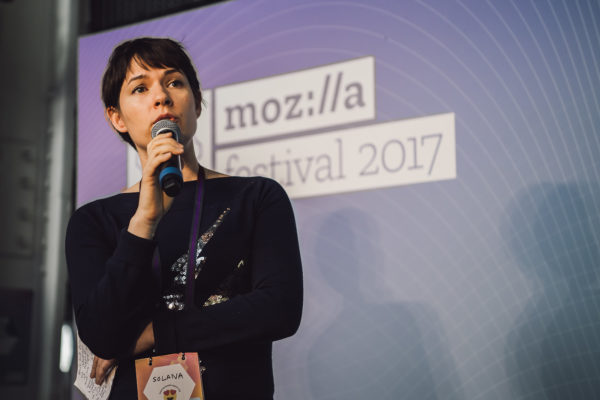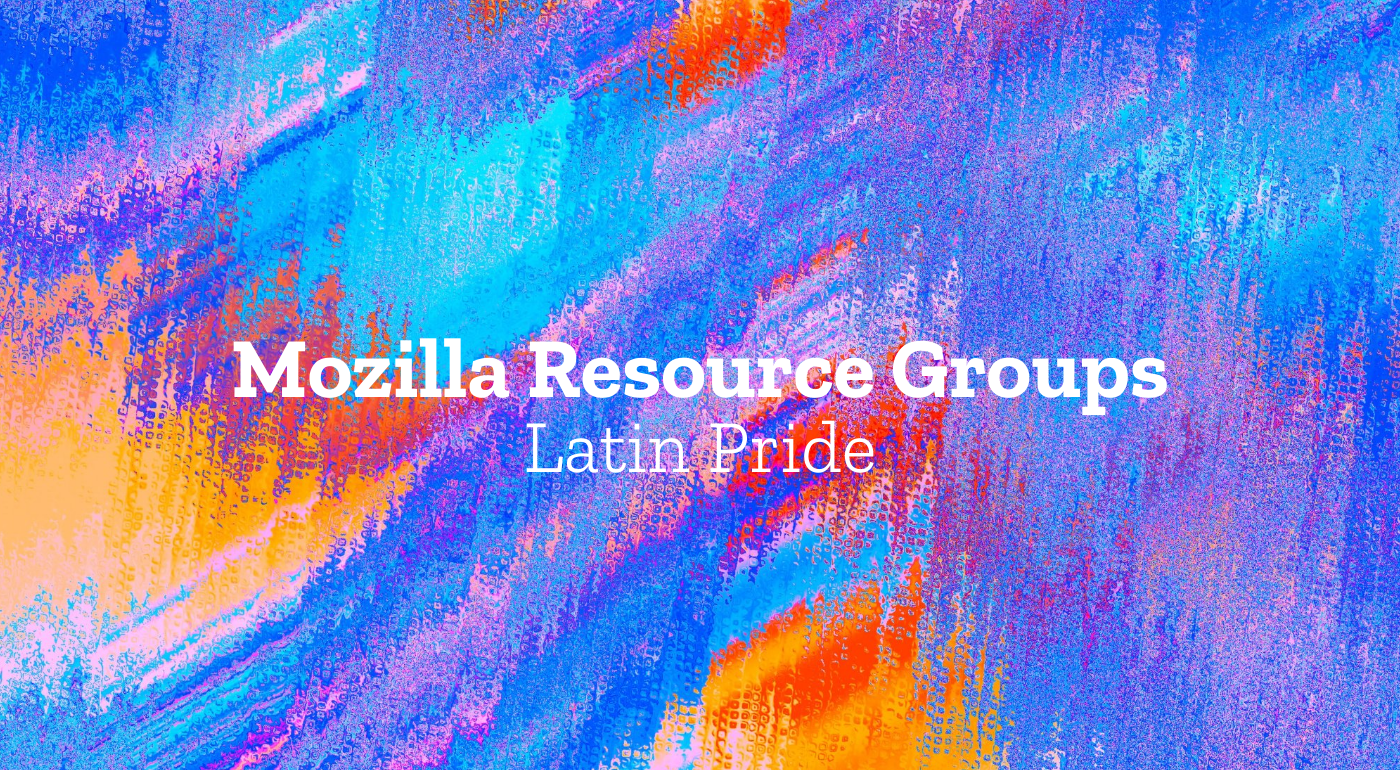It’s our mission at Mozilla to build an internet that includes everyone, regardless of demographics and opportunities, and we’re building our team the same way. We believe our growing list of Mozilla Resource Groups (MRGs)—Afrozillians, Disability@Mozilla, Pridezilla, Latin Pride, Mozilla API, and Women of Mozilla—are critical to our success.
We also believe that the best way to understand these groups is through the people in them. Below, Latin Pride member and Editor of the Mozilla Foundation’s Internet Health Report Solana Larsen explains why she got involved in the group, reflects on some of the work they’ve done so far, and shares her hopes for the future of Latin Pride—and for a more diverse, inclusive Mozilla.
How and why did you get involved with Latin Pride?
I joined around Hispanic and Latin Heritage Month last year—I noticed some Latin music playing at the beginning of a team meeting, and there was a link to the group’s Slack channel, so I thought I’d see what they were up to.
As for why, I just wanted to do my part. One of the topics we cover in the Internet Health Report is lack of diversity—in tech generally and in open source specifically—and when it comes to diversity stats, Mozilla is no better than any other company. Part of how we change that, though, is by celebrating and making visible the diversity we do have—both so that staff from a diversity of backgrounds feel more comfortable being their complete selves at work, and so that diverse and multilingual candidates will know this is an environment where they are welcome. A lot of this signaling comes from our leadership, of course, but I believe everyone at the company can play a role. This is a mission and goal we can all work toward, and participating in and strengthening our MRGs is part of that work.
What kinds of activities does the group host?
Year-round, a lot of what goes on is conversations in the Slack channel—the group is still relatively small, and there’s such a range of different experiences, so it’s been helpful to calibrate and figure out what we have in common. There’s the American experience of being Latinx or Hispanic, but we also have group members in Europe, like myself, and those from Latin America and the Caribbean. Some of us speak English as a second language; others don’t speak Spanish at all. The group has allowed us to get to know each other, and to learn more about that range of backgrounds.
So far, we’ve been most active in supporting Hispanic and Latin Heritage Month activities. We suggested this year’s theme, for example, which is “language and identity.” I think that theme is a good reflection of our group, in that it means something slightly different to each of us. I have a Puerto Rican background, so I think about our complicated colonial relationship with the U.S., which among other things is a struggle of language and identity. Someone else might think about growing up speaking Spanish at home, but not being allowed to do so at school. Language is political; it is used as a tool of oppression. And that’s not limited to English. In numerous places, Spanish itself has displaced Indigenous languages.
Beyond the theme, we’ve also been part of planning events for the month. We did a panel on language and identity that was broadcast internally, and there were language lessons, dance lessons, and cooking lessons. It was a fun mix.
How does Mozilla support the MRG’s goals, and D&I in general?
I think we’ve seen momentum recently, from leadership and across Mozilla. Our diversity metrics are being shared publicly, and there are specific goals set both for the corporation and the foundation. We have hiring targets, and trainings for hiring managers. We’ve also committed a certain percentage of grant-making to organizations led by people of color.
It’s also true that for many of us, D&I is built into the work we do every day. At the foundation, for example, we work directly with digital rights activists and researchers around the world. We have fellows from many different countries who help inform our research and program strategies. The Internet Health Report has a global audience, and it has always been at least partially translated into different languages. And MozFest, of course, is a fundamentally diverse event—people attend from all over the world.
What are your hopes for the future of D&I at Mozilla—and for Latin Pride specifically?
Across Mozilla, I think there’s so much more we can do. In terms of hiring, for example, it’s about not just the decisions we make, but also how we prioritize different experiences throughout the process. We can also do more outreach to Latinx developers and institutions, which I think is coming. In terms of products, I’d love to see us do things like prioritize Mozilla VPN services for countries that censor entire social media platforms or blackout LGBTQ+ content on the web. I’d also love to see us do more communication—and direct outreach—in Spanish in the U.S. Everyone needs and deserves privacy, but surveillance tech is a particularly big concern for undocumented people.
So there’s no shortage of ideas; we just have to set priorities. And I believe we have hundreds of volunteers who have worked in customer support in Spanish or translated products over the years, and I think we could draw even more on their input.
As for the MRG itself, I’m excited to see it grow. The more Latinx people we hire, the stronger and more dynamic Latin Pride will be—and the more we’ll be able to share different perspectives in our day-to-day work, whether it’s how a certain feature design will look to someone in another part of the world or how our campaigns can reach an even wider and more inclusive audience. I want our members to use their voices not just within our group, but throughout all of Mozilla.
